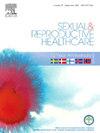Factors affecting provision of high-quality maternal and newborn healthcare in Zanzibar – A qualitative study
IF 1.7
3区 医学
Q3 PUBLIC, ENVIRONMENTAL & OCCUPATIONAL HEALTH
引用次数: 0
Abstract
Objectives
In Tanzania and Zanzibar, the maternal mortality ratio remains high, hence, this study explored factors affecting the provision of high-quality maternal and newborn healthcare in Zanzibar.
Methods
A qualitative research design was used, with data collected through five focus group discussions (FGDs) with healthcare providers. The discussions, held in Swahili, included midwives, nurses, and medical doctors (n = 27) working at five childbirth clinics in Zanzibar. A semi-structured FGD guide was used. All discussions were audio-recorded, transcribed, and translated into English. Content analysis was performed.
Results
Three generic categories describe the factors affecting the provision of high-quality maternal and newborn healthcare: i) a shortage of essential resources, including medical equipment, medication, and an emergency transport system; ii) an inadequate working environment, characterized by understaffing, low salaries, limited involvement of and protection for healthcare providers, and a lack of clinical guidelines; and iii) healthcare perception and cultural dynamics encompassing mistrust of healthcare providers, as well as cultural beliefs and practices.
Conclusions
The study highlights critical barriers to the provision of high-quality maternal and newborn care in Zanzibar, including resource shortages, inadequate working environments, and cultural perceptions of healthcare. These findings suggest that addressing systemic challenges, such as improving resource allocation and enhancing healthcare infrastructure, is essential for advancing maternal and newborn health outcomes. Additionally, efforts to align healthcare practices with local cultural dynamics are crucial to improving service utilization. These findings underscore the need for targeted interventions to strengthen healthcare delivery and reduce maternal and newborn mortality in Zanzibar and similar settings.
影响桑给巴尔提供高质量孕产妇和新生儿保健的因素——一项定性研究
在坦桑尼亚和桑给巴尔,孕产妇死亡率仍然很高,因此,本研究探讨了影响桑给巴尔提供高质量孕产妇和新生儿保健的因素。方法采用定性研究设计,通过与医疗保健提供者的五个焦点小组讨论(fgd)收集数据。参加讨论的人员包括在桑给巴尔五个分娩诊所工作的助产士、护士和医生(27人),他们用斯瓦希里语进行了讨论。采用半结构化的FGD导流器。所有的讨论都被录音、转录并翻译成英语。进行内容分析。结果影响提供高质量孕产妇和新生儿保健的因素分为三类:1)基本资源短缺,包括医疗设备、药物和应急运输系统;(二)工作环境不足,其特点是人员不足、工资低、保健提供者的参与和保护有限,以及缺乏临床指南;以及iii)医疗保健感知和文化动态,包括对医疗保健提供者的不信任,以及文化信仰和实践。该研究强调了在桑给巴尔提供高质量孕产妇和新生儿护理的关键障碍,包括资源短缺、工作环境不足和对医疗保健的文化观念。这些发现表明,解决系统性挑战,如改善资源分配和加强卫生保健基础设施,对于促进孕产妇和新生儿健康结果至关重要。此外,努力使医疗保健实践与当地文化动态保持一致对于提高服务利用率至关重要。这些调查结果强调需要有针对性的干预措施,以加强医疗保健服务,降低桑给巴尔和类似地区的孕产妇和新生儿死亡率。
本文章由计算机程序翻译,如有差异,请以英文原文为准。
求助全文
约1分钟内获得全文
求助全文
来源期刊

Sexual & Reproductive Healthcare
PUBLIC, ENVIRONMENTAL & OCCUPATIONAL HEALTH-
CiteScore
2.70
自引率
5.60%
发文量
73
审稿时长
45 days
 求助内容:
求助内容: 应助结果提醒方式:
应助结果提醒方式:


